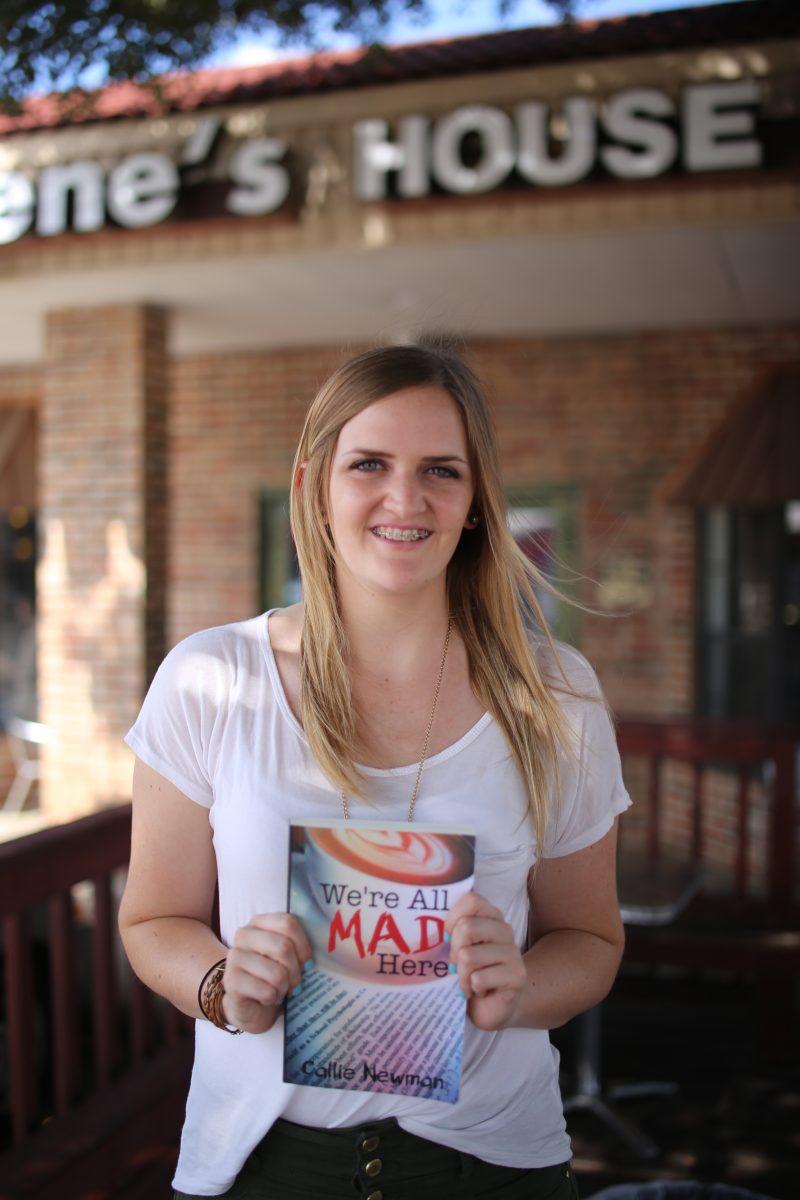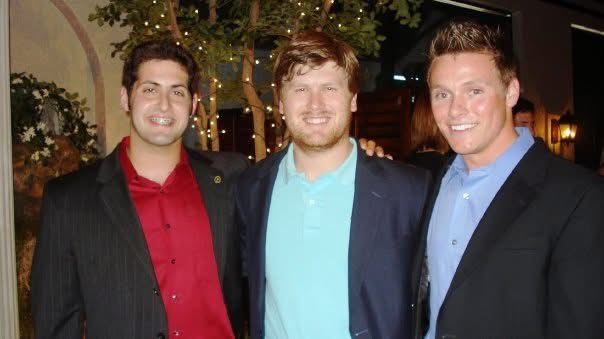Most authors will say it is a challenge to write a 70,000-word book — and get that book published. However business senior Callie Newman took on that exact challenge.
Her book — titled “We’re All Mad Here” — is a coming-of-age story about a woman in college who is diagnosed with schizophrenia. She forms a relationship with another student who studies psychology and discovers her family has a history with the mental disorder. Newman began writing the novel as a way to escape from homework, but thousands of words later, she is poised to self-publish.
Two years ago, Newman said she was taking a class on accounting when she began writing the novel.
“I was sitting down to study accounting and was like, ‘Man, this sucks,’” Newman said. “So I started writing. And before I knew it, it was done. Then I was like, ‘Well now that it’s done, I might as well edit it.’ It just kind of snowballed like that.”
Newman said the story was inspired by an event in her own life when, sleep deprived and delirious, she began thinking she was schizophrenic.
“I took a psychology class freshman year, and we talked about schizophrenia for a day,” Newman said. “I’m one of those people who does WebMD and then goes into a panic attack. I thought that I was schizophrenic because I was seeing all these blurs and stuff. I was just sleep deprived.”
But once she realized the cause, Newman said she imagined a story coming out of it.
Newman self-published her book with the help of multiple digital platforms. After a Kickstarter funding drive, she published with the help of Amazon’s program “CreateSpace,” which allows authors to publish and distribute as they see fit. Newman said she did this to avoid the difficulty of traditional publishing.
“I thought about sending it to publishing houses, but I researched that, and the big houses are buying out all the little ones, and they don’t — they’re not big on taking risks with new authors, especially young ones,” Newman said. “So unless you have written something that fits to a really specific, popular formula, they’re probably not going to pick it up.”
Jan Denson, a Licensed Clinical Social Worker whom Newman interviewed for her book, said that sleep deprivation can lead to symptoms similar to various mental illnesses.
“The relationship with sleep deprivation — When I’m seeing a client I always, in my assessment, talk with them about that,” Denson said. “Because sleep deprivation and various mental illnesses will have similar characteristics, such as a very surreal feeling, irritability, cognitive impairment even.”
Denson said much of the stigma in mental illness comes from a feeling of shame sufferers carry.
“If there’s a stigma associated with seeking help, they’re gonna try to deal with it on their own, which often ends up with self-medicating in various ways that end up being unhealthy,” Denson said.
Denson also said due to the stigma associated with mental illness, many sufferers simply deny their diagnosis.
“For various reasons, I think a large part of it is the stigma associated with mental illness, people will constantly try to convince themselves that, if they’re on medication and they’re getting better, they’ll convince themselves, ‘Oh I don’t need this medication,’” Denson said. “But if you were diagnosed with diabetes and you were told that, if you take a medication you can function and you can do well, what would you do? 99 percent of people say, ‘Well I’d take the medication.’”
Denson seemed especially worried about college students getting enough sleep, as the stress levels a modern student faces are tremendous.
“[College students] want to think they can exist on 2 or 3 hours of sleep a night.” Said Denson. “They don’t want to have to face the fact that, eventually, this is gonna catch up with them, and they’re going to pay a very serious price for it.”
Cameron Schmidt, Newman’s sister, took on the role of her publicist and was surprised at what she found. Schmidt contacted people up and down the Aggie network, former students they knew across Texas and even celebrities in order to garner support.
Schmidt said it’s one thing to see the viral nature of the Internet, yet another entirely to have it happen to someone you know.
“It was amazing watching it take off,” Schmidt said. “Five of my friends would share it, and three of theirs, and so on. You hear about that all the time, but it was pretty cool to see it actually happen to her, people getting so excited about something that wasn’t even out yet.”
The book is expected to be released in late October.










